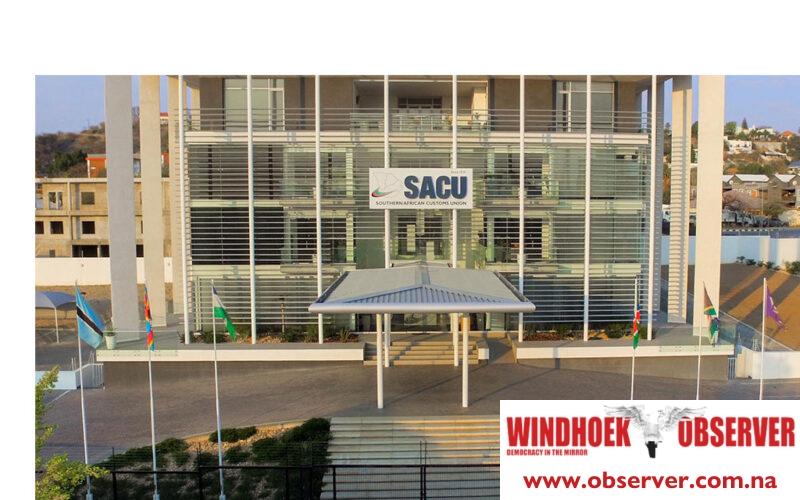Ester Mbathera
With the Namibian dollar pegged to the South African rand, the country finds itself caught in the eye of the storm as the trade dispute between the United States and South Africa intensifies.
At the same time, with 40% of its public budget reliant on the Southern African Customs Union (SACU) revenue pool, Namibia has every reason to be concerned.
These are the sentiments of economist Dr. Omu Kakujaha-Matundu, who warned that any shift in SACU’s tariff structures could deal a severe blow to President Netumbo Nandi-Ndaitwah’s dream of job creation and economic growth.
He cautioned that Lesotho, in its desperation, could buckle to economic pressure and offer a low or zero tariff, as well as South Africa, whose tariff board is the only instrument that can set the Common External Tariff for SACU.
“Now, let’s say Lesotho, as well as South Africa, which has had tariffs imposed at 31%, and the other three SACU members agree to lower tariffs to save their industries. The tariff revenue that used to flow into the SACU pool will be reduced, and the share of revenue that Namibia gets from this pool will be less. Namibia gets 40% of its public budget from SACU. Then, President Ndaitwah can kiss her dream of creating jobs goodbye, or she could figure out how we could do more with less,” said Kakujaha-Matundu.
Rodney Cloete, the Chief Whip of the Independent Patriots for Change (IPC), also urged the government to speak with one voice with its neighbours in addressing the challenges posed by international tariffs.
“Namibia exported approximately N$5.1 billion worth of goods to the US in 2024. A 10-20% drop in demand due to tariffs will undermine economic stability. Moreover, this challenge is compounded by the fact that neighbouring countries face steeper tariffs – Lesotho (50%), Botswana (37%), South Africa (30%), and Angola (32%). The absence of a coordinated response threatens regional trade integrity,” he said.
The country’s dependence on SACU has long been a bone of contention.
The late President Hage Geingob in 2023 criticised the manner in which South Africa is managing SACU.
It was also Geingob’s position at the time that the union be reformed to a modern one with democracy in revenue sharing.
On Tuesday, Ambassador Selma Ashipala-Musavyi, international relations minister, told parliament that her ministry has initiated and will continue discussions with the US embassy to fully understand the new tariff regime.
However, she conceded that ultimately the fate of the country’s economic standing in this dispute lies largely in the hands of SACU.
“Since Namibia is a member of SACU, and given the Common External Tariff applied by the Customs Union, dialogue at SACU is envisaged in order to have a common understanding on how best to engage the US Administration. In this context, I wish to inform that SACU has been tasked to undertake a comprehensive analysis of the impact of the new tariff imposed by the new US administration, she said.
Earlier this year, the Bank of Namibia (BoN) projected that the country would face a decline in SACU revenue, from N$28 billion in 2024 to N$21 billion in 2025.
Meanwhile, US President Donald Trump’s executive order, targeting SA’s land reform and support for Palestine, keeps Namibia in the mix of the diplomatic spat, having joined the ICJ case against Israel and unwaveringly supporting Palestinian self-determination.
The country’s export market to the U.S. includes beef, blueberries, and grapes, though in smaller quantities.
Fortunately, the country’s larger, more lucrative markets are the EU and China, which are more likely to absorb the shortfall should the US demand decrease.




